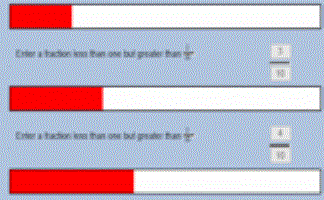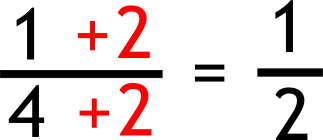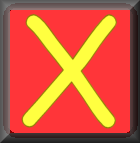Answers
Sign in to your Transum subscription account to see the answers
Note to teacher: Doing this activity once with a class helps students develop strategies. It is only when they do this activity a second time that they will have the opportunity to practise those strategies. That is when the learning is consolidated. Click the button above to regenerate another version of this starter from random numbers.
Extension activities
Find the number which when added to the numerator and denominator of each of the fractions above make them equivalent to one third.
What should be added to the numerator and denominator of the fraction whose numerator is n and denominator is d to make it equivalent to one half?
What should be added to the numerator and denominator of the fraction whose numerator is n and denominator is d to make it equivalent to one third?
|
Change the background of this page to
or
for clearer classroom display.
|
||

|
Teacher, do your students have access to computers such as tablets, iPads or Laptops? This page was really designed for projection on a whiteboard but if you really want the students to have access to it here is a concise URL for a version of this page without the comments: Transum.org/go/?Start=May22 However it would be better to assign one of the student interactive activities below. |
|
Here is the URL which will take them to a related student activity.
A glass ½ full = A glass ½ empty
Multiply both sides by two
A full glass = An empty glass
Curriculum Reference
See the National Curriculum page for links to related online activities and resources.





